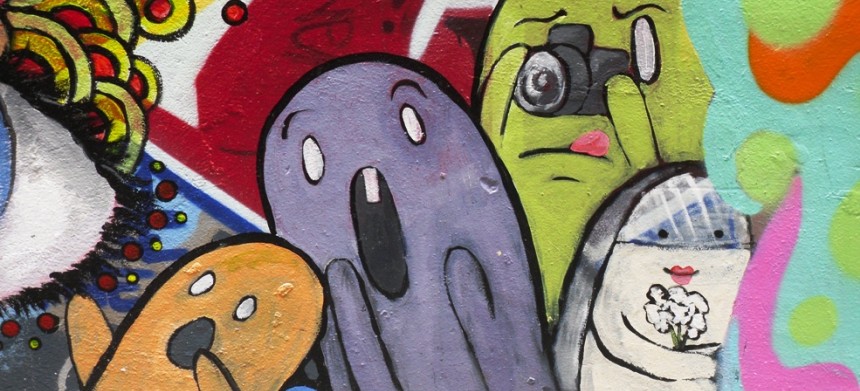"According to usage and conventions which are at last being questioned but have by no means been overcome, the social presence of a woman is different in kind from that of a man. A man's presence is dependent upon the promise of power which he embodies. If the promise is large and credible his presence is striking. If it is small and incredible, he is found to have little presence. The promised power may be moral, physical, temperamental, economic, social, sexual - but its object is always exterior to the man. The man suggests that he is capable of doing to you or for you. (...)
By contrast, a woman's presence expresses her own attitude to herself, and defined what can and cannot be done to her. Her presence is manifest in her gestures, voice, opinions, expressions, clothes, chosen surroundings, taste - indeed there is nothing she can do which does not contribute to her presence. (...) To be born a woman has been to be born, within an allotted and confined space, into the keeping of men. The social presence of women has developed as a result of their ingenuity in living under such tutelage within such a limited space. But this has been at the cost of a woman's self being split into two. A woman must continually watch herself. She is almost continually accompanied by her own image of herself. (...) From earliest childhood she has been taught and persuaded to survey herself continually.
And so she comes to consider the surveyor and the surveyed within her as the two constituent yet always distinct elements of her identity as a woman."
John Berger, Ways of Seeing
In writing to a man, for instance, you notice this distinction with unmistakable clarity.
The surveyed: buoyant, filled to the brim with living emotion, alive, absurd, intense, short-sighted, impulsive, unpredictable, sensual, demanding, loving and in love, confused, afraid, enraged, enthralled, ecstatic, thrilled, intemperate, playful, silly and fun, despairing, sincerely attached, suffused with the awe of being and of the other, attentive, curious, engaged, capable of infinite healing and unpredictable growth, but fragile, but funny, but silly, and sad.
The surveyor: sometimes embarrassed on behalf of the surveyed, sometimes tyrannical, sometimes begrudging. Maybe the sort of attitude inherited from one's parents, who themselves were embarrassed by their own humanity, tyrannical dictators of it, frustrated managers. Maybe dictated by the community, which needs you to be predictable and well-behaved.
But what does the surveyor convey for others to understand? There is a midpoint between the two endpoints, between sincerity and politeness, between being fully yourself and being something that fits within the bigger picture. And the midpoint varies from situation to situation. And I don't know what forces pull in each direction.
In the personal, we champion the surveyed. Who today won't tell you to show yourself, to do you, to be honest, and bold?
In the professional, it's the surveyor that often or usually gets the praise. The very word "professional" suggest a person who has mastered herself and can mould herself to the required interface. In work, the community must win over the individual, because that's how anything gets done. We put aside our whimsical multicoloured selves for a while in order to build the city. It's the sacrifice we make in order to have cities. And everything else that membership of the human community affords us.
And sometimes when you work all the time, the surveyed grows riotous from suppression. Can you be yourself and still do good work? Can you even do better work by being yourself?
The answer, as ever, is balance. Bowing yourself to the greater cause of Building is not a problem to be done away with. The sacrifice can be awe-inspiring, grand. There is a Building instinct within us. Such as there is a Social instinct within us, for which being polite at the cost of sincerity is a joyous sacrifice.
